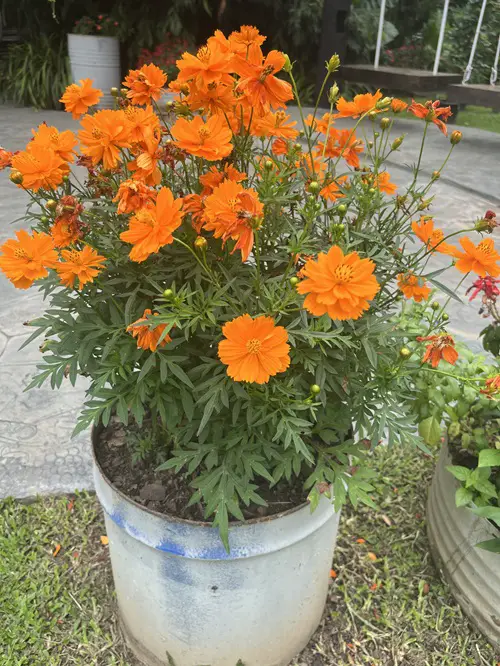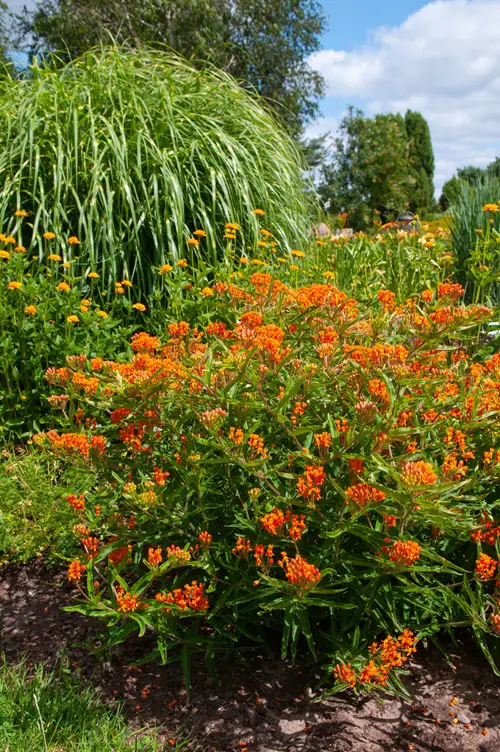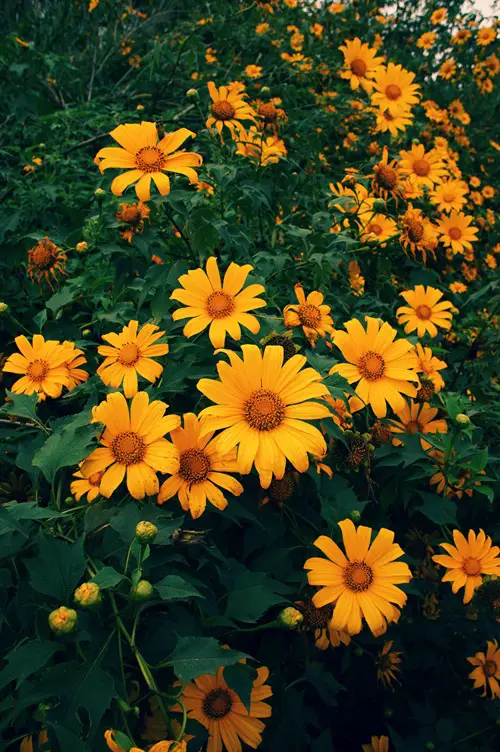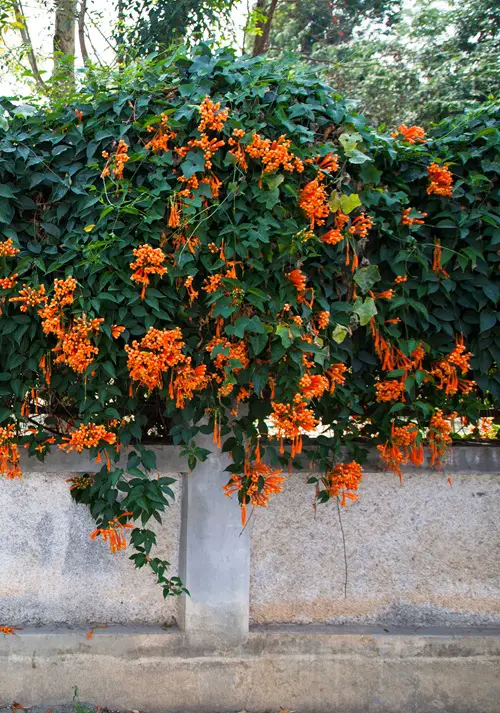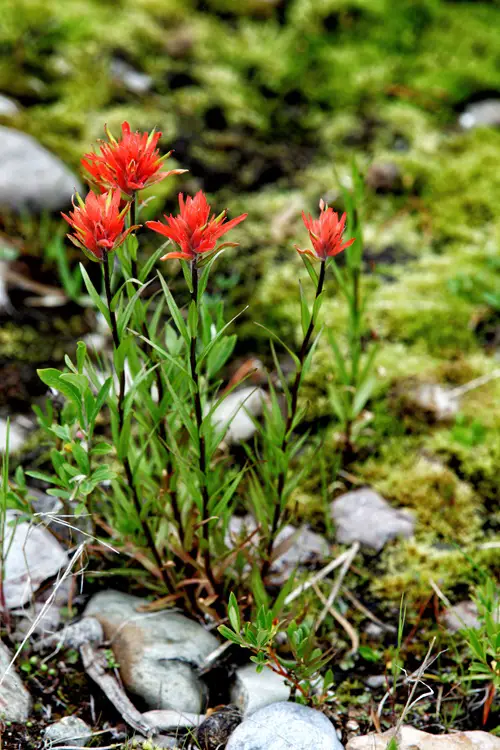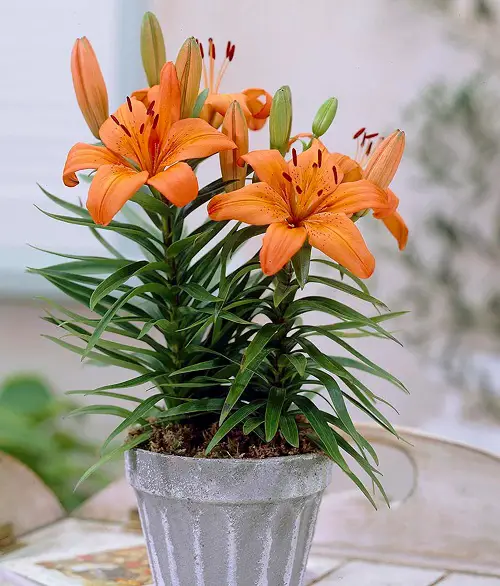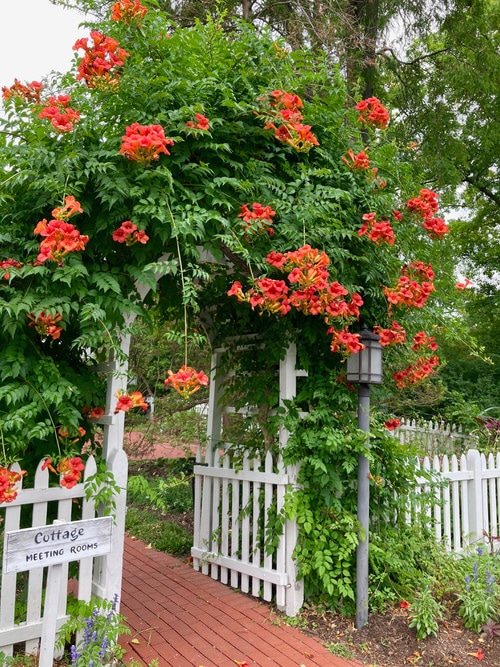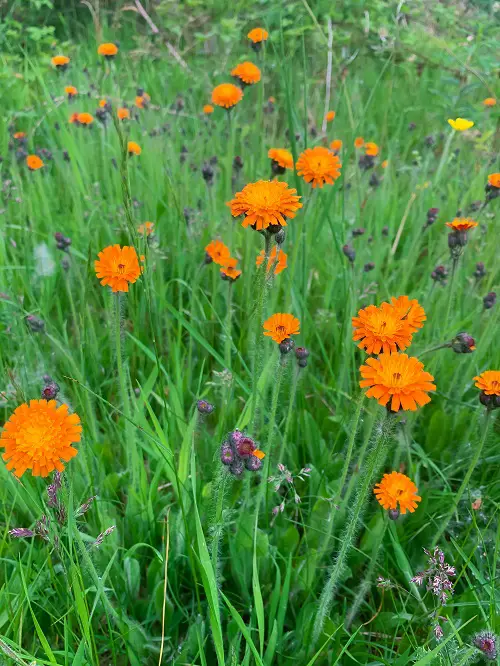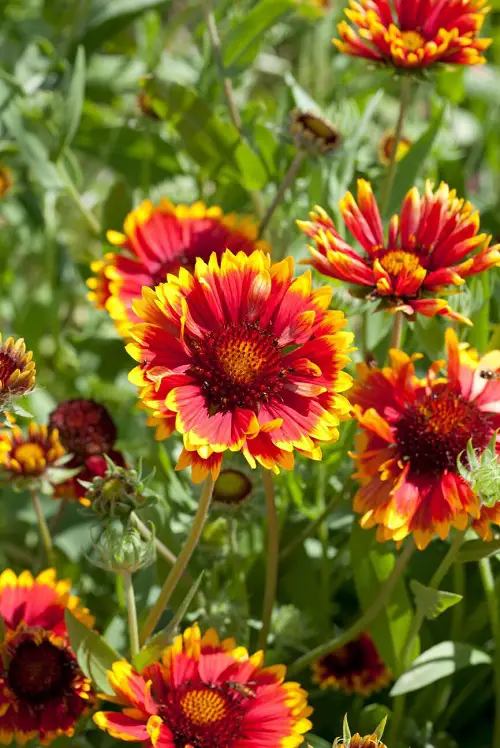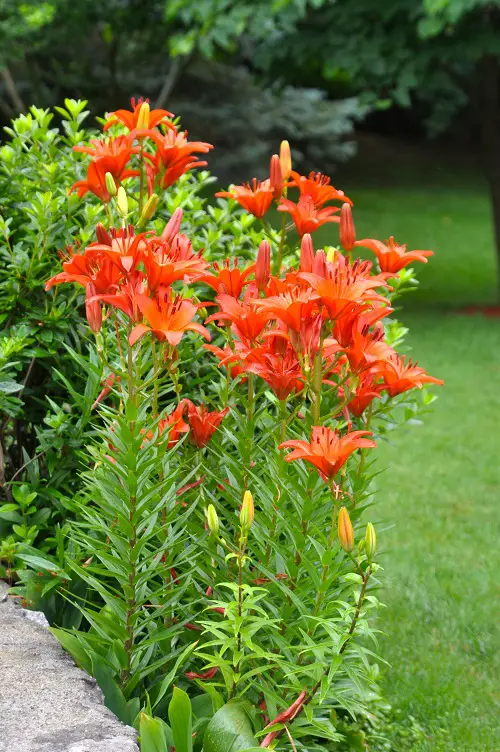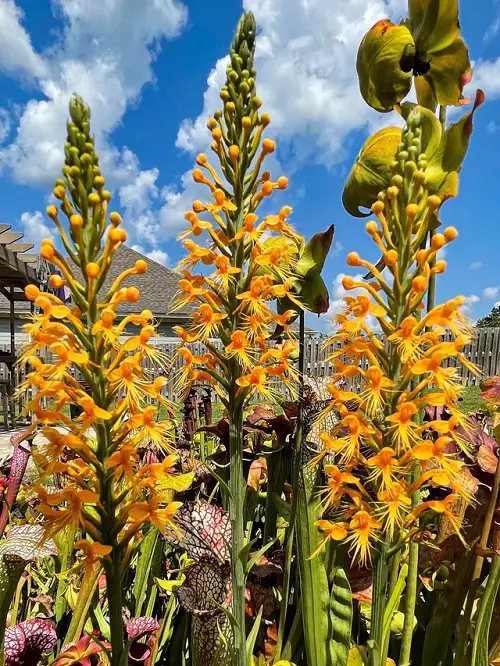We’ve got an amazing list of Orange Flowers in Florida that will help you add fiery hues to your garden and home!
Why Orange Flowers in Florida? Well, they add a beautiful contrast to green and light up like lanterns under the sunlight! Take a look at our list, and you’ll be convinced.
Florida State Flower and How to Grow It
Orange Flowers in Florida
1. Cosmos
Botanical Name: Cosmos bipinnatus
USDA Hardiness Zones: 2-11
Cosmos flowers bloom from late spring to early fall and invite pollinators to your garden. Go with Klondike Cosmos–it has lovely orange-golden flowers.
2. Butterfly Weed
Botanical Name: Asclepias tuberosa
USDA Hardiness Zones: 3-9
Butterfly weed is best for Florida summers because it needs little maintenance and rewards you with lance-shaped leaves and fiery orange small flower clusters.
3. Mexican Sunflower
Botanical Name: Tithonia diversifolia
USDA Hardiness Zones: 2-11
This sun-loving flower has daisy-like flowers that come in a deep yellow or orange-red hue that give off a mild, sweet scent.
4. Flame Vine
Botanical Name: Pyrostegia venusta
USDA Hardiness Zones: 9-11
Flame vines, also called Orange Trumpet vines, are fast growers and will quickly cover up a fence or wall and adorn it with stunning orange flowers.
5. Indian Paintbrush
Botanical Name: Castilleja
USDA Hardiness Zones: 4-8
The Indian Paintbrush has small, tubular orange flowers with subtle yellow highlights and grows 1-2 feet tall.
6. Orange Daylily
Botanical Name: Hemerocallis fulva
USDA Hardiness Zones: 3-9
Orange daylilies have gold petals with an orange shade and are perfect for Florida gardens, but they don’t do well indoors because they need direct sunlight. They easily reach 6 feet in height.
7. Firebush
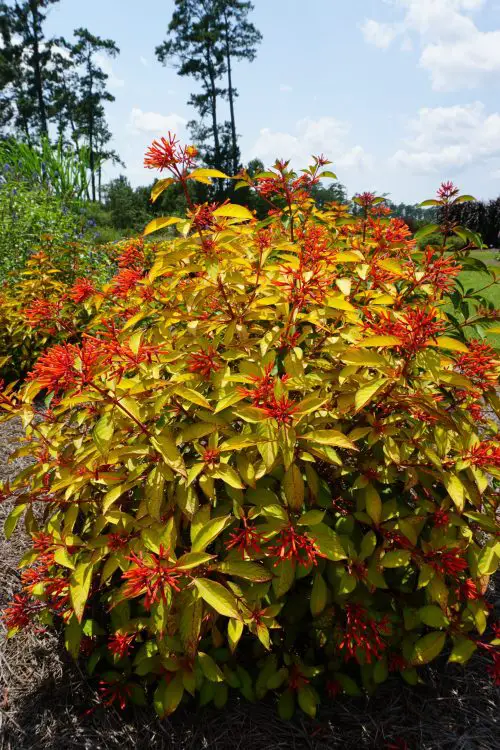
Botanical Name: Hamelia patens
USDA Hardiness Zones: 8-11
Firebush is a semi-woody shrub with tubular flowers in an orange-red shade that grows well in Florida’s climate. They also bloom year-round.
8. Trumpet Vine
Botanical Name: Campsis radicans
USDA Hardiness Zones: 4-10
If you’ve got a fence in your backyard or garden, you’ve got to grow the trumpet vine. It’s a vigorous grower that can easily reach 30-35 feet.
9. Marigold
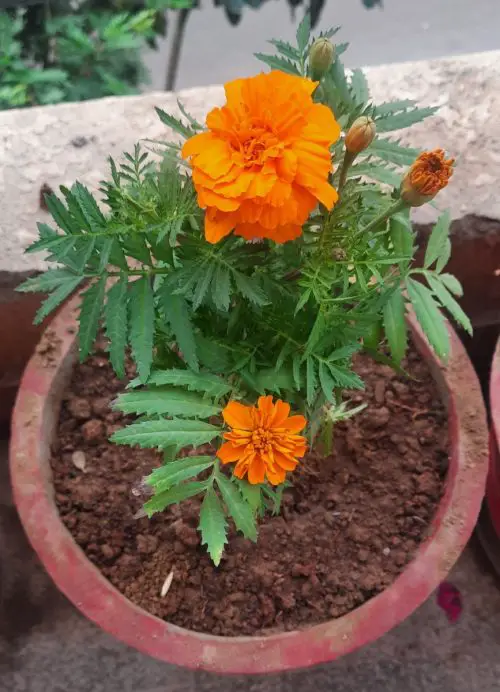
Botanical Name: Tagetes
USDA Hardiness Zones: 2-11
Marigolds are more than pretty orange flowers. They are annuals in Florida and great for borders, pots, and edging.
10. Orange Zinnia
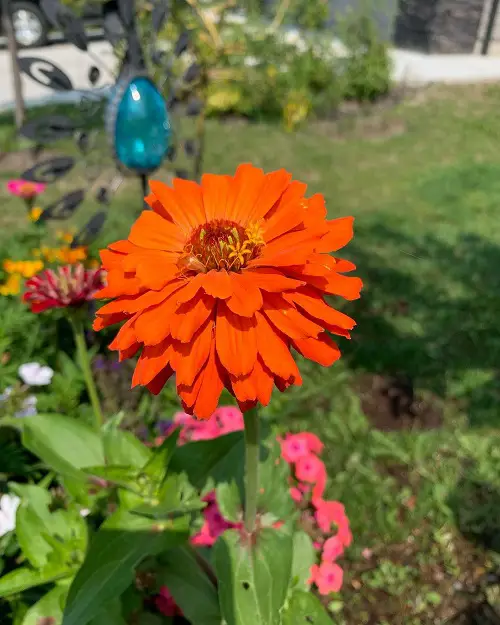
Botanical Name: Zinnia elegans
USDA Hardiness Zones: 3-10
Zinnias are great for cut flower arrangements with their long, sturdy stems and gorgeous orange flowers.
11. Spotted Touch-Me-Not
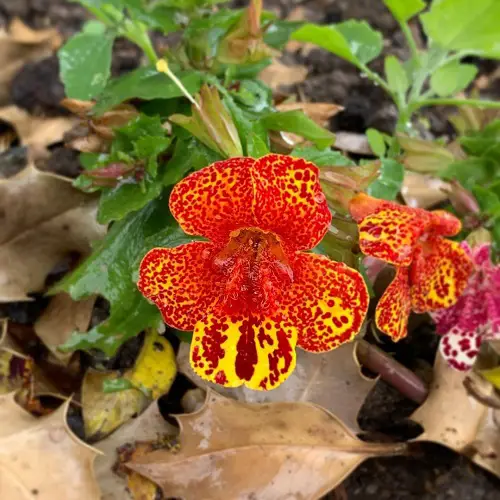
Botanical Name: Impatiens capensis
USDA Hardiness Zones: 2-11
This summer-blooming wildflower has bright yellow flowers covered in numerous orange or red spots. It’s also known as Jewelweed.
Have a look at the most beautiful pink flowering trees in Florida
12. Orange Hawkweed
Botanical Name: Hieracium aurantiacum
USDA Hardiness Zones: 5-10
You might also know this one as Hawks and Cubs–it’s a perennial of the sunflower family and has beautiful flowers of orange.
13. Lantana
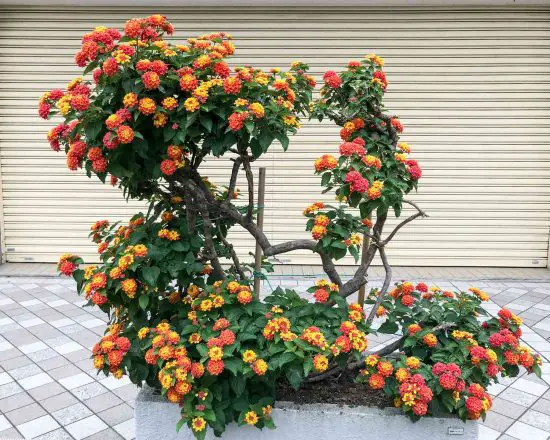
Botanical Name: Lantana camara
USDA Hardiness Zones: 7-11
Lantana is a hardy shrub best for sunny, open areas. Its absolutely beautiful flowers grow quickly, making it a Category I invasive species.
14. Crossvine ‘Tangerine Beauty’

Botanical Name: Bignonia capreolata
USDA Hardiness Zones: 5-9
This one gets its name from the color of its flowers. It’s a self-clinging vine with trumpet-shaped blooms that need afternoon shade.
15. Carolina Lily
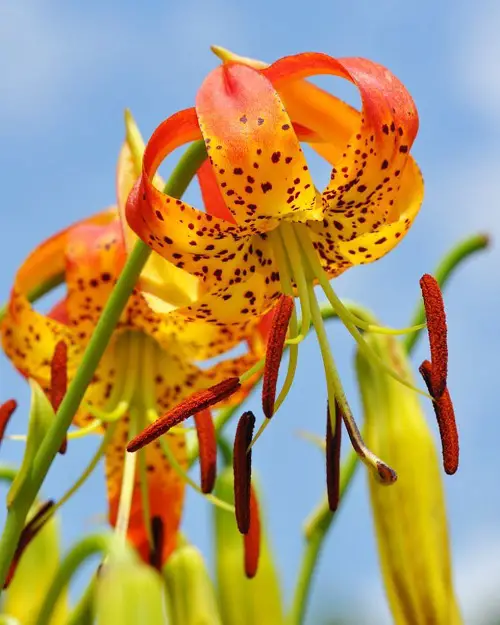
Botanical Name: Lilium michauxii
USDA Hardiness Zones: 6-9
These flowers are a bright orange-red shade and bloom as late as October. It’s also the official wildflower of North Carolina.
16. Orange Milkwort
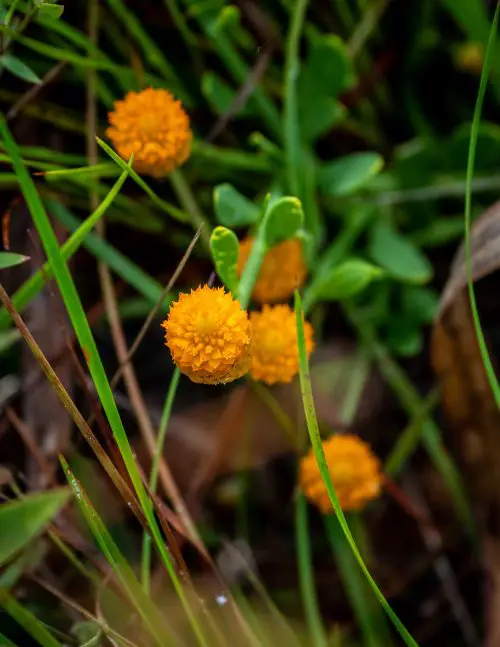
Botanical Name: Polygala lutea
USDA Hardiness Zones: 6-10
You’ll often find these growing in Florida bogs, savannas, and roadside ditches. They’re short wildflowers that thrive in wet, sandy soil.
17. Flame Azalea
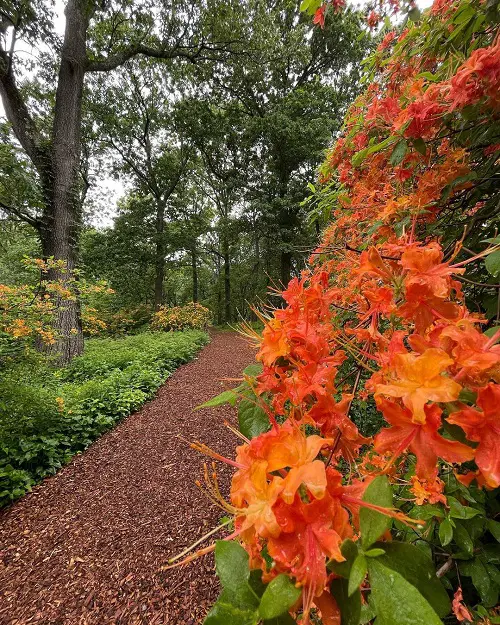
Botanical Name: Rhododendron calendulaceum
USDA Hardiness Zones: 5-8
Flame Azaleas are pretty common in Northern Florida and can be found in buffs, slope forests, and ravines. They have a pastel orange shade that’s easy to identify.
18. Blanket Flower
Botanical Name: Gaillardia pulchella
USDA Hardiness Zone: 2-11
These flowers bloom from spring, summer and into fall and have a lovely red-orange inner band and yellow tips. They’re nectar rich and a pollinator favorite.
19. Tiger Lily
Botanical Name: Lilium lancifolium
USDA Hardiness Zone: 7b-10a
Tiger Lilies live long and need little maintenance to thrive. Just give them full to partial sunlight, and they’ll reward you with fiery orange blooms.
20. Orange Fringed Bog Orchid
Botanical Name: Platanthera ciliaris
USDA Hardiness Zone: 5-9
If you love large and showy flowers, this should be your pick. They have distinctive fringed lips and beautiful yellow and orange hues.
21. Standing Cypress
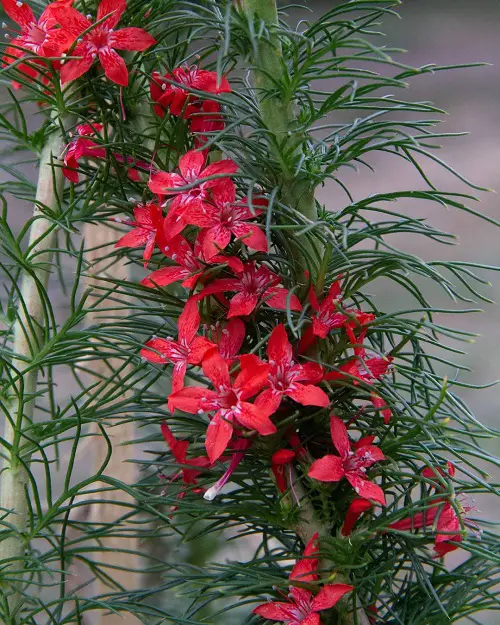
Botanical Name: Ipomopsis rubra
USDA Hardiness Zone: 6-9
These orange-red flowers in Florida need dry, gritty, rocky, or sandy soil to thrive and attract hummingbirds.
22. Tropical Milkweed
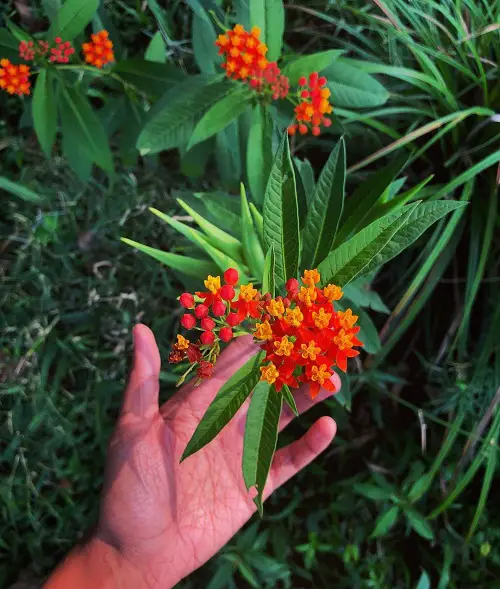
Botanical Name: Asclepias curassavica
USDA Hardiness Zone: 8b-11
This one is also known as Mexican Butterfly weed and blooms in late summer/early fall. It’s named so because it attracts butterflies.
23. Fewflower Milkweed
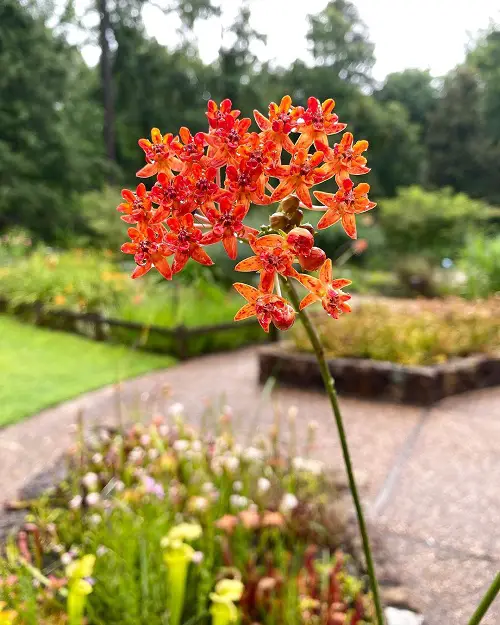
Botanical Name: Asclepias lanceolata
USDA Hardiness Zone: 5-11a
Fewflower Milkweeds are delicate wildflowers with a sleek, tall stem that ends in a cluster of tiny, star-shaped orange flowers.
24. Scarlet Wisteria
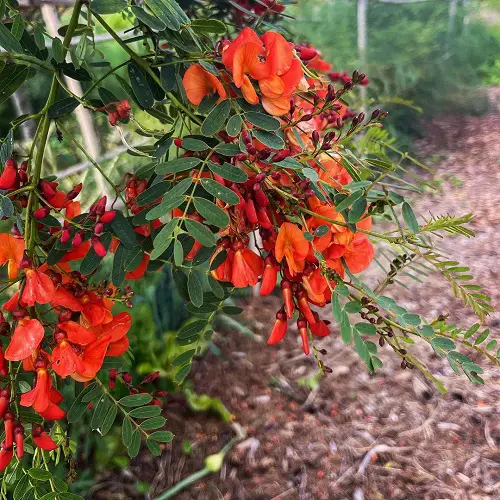
Botanical Name: Sesbania punicea
USDA Hardiness Zone: 8a-11
Scarlet Wisteria is a small tree/shrub that’s grown as an ornamental plant. It can easily reach 15 feet in height if given proper care.
25. Silk Cotton Tree
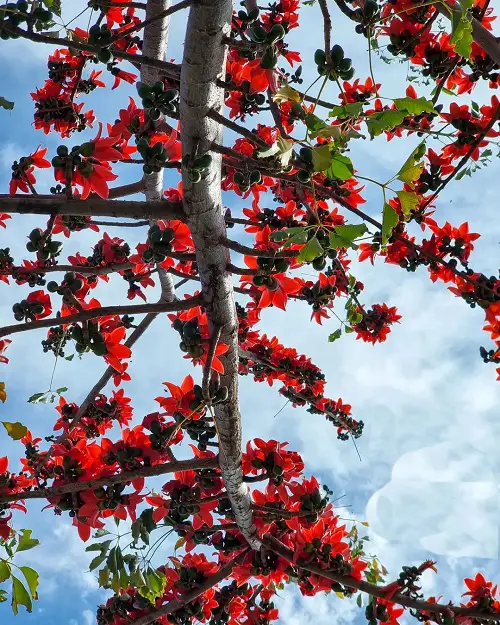
Botanical Name: Bombax ceiba
USDA Hardiness Zone: 10-12
The Kapok tree has beautiful red-orange flowers that grow on a broad crown of horizontal branches.
26. Sweet Osmanthus
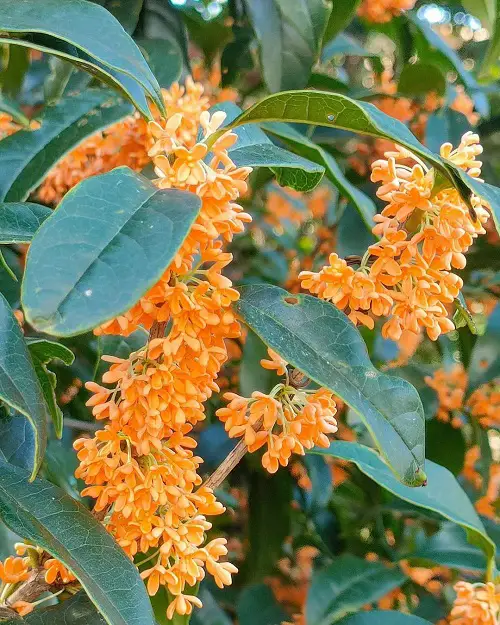
Botanical Name: Osmanthus fragrans
USDA Hardiness Zone: 8-11
These are dense shrubs in Florida with honey-orange flowers. Sweet Osmanthus are extremely drought-tolerant once mature but you need to be careful when they’re young.
27. Flame of the Forest
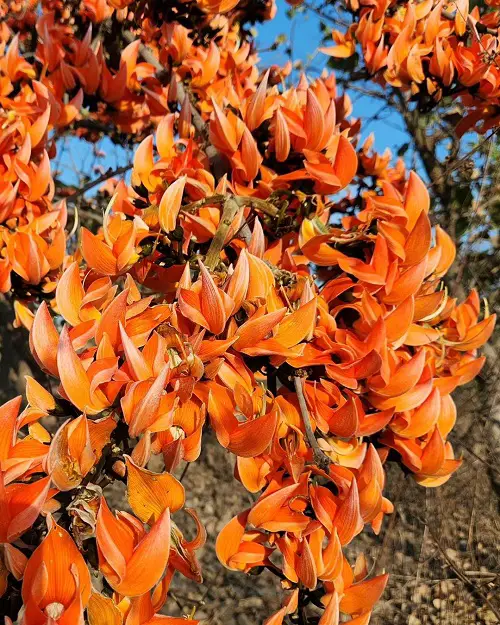
Botanical Name: Butea monosperma
USDA Hardiness Zone: 9b-11
This dry-season tree blooms in late winter and early spring, uplifting the garden with its fiery flowers. They’re slow-growing but do reach nearly 50 feet.
28. Orange Royal Poinciana
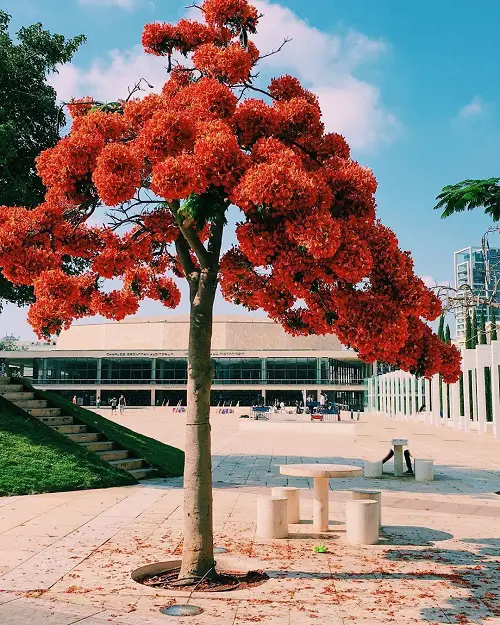
Botanical Name: Delonix regia
USDA Hardiness Zone: 9b-11
These massive trees form a stunning canopy of orange flowers once they mature. They’re actually native to Madagascar but grown as ornamental trees in Florida.
Here are the Best Palm Trees in Florida
29. Jamaican Rain Tree
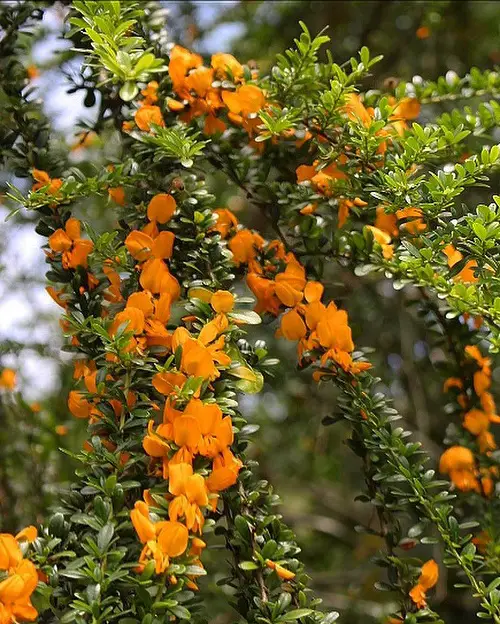
Botanical Name: Brya ebenus
USDA Hardiness Zone: 10-11
This one’s a drought-resistant option that grows 20-30 feet tall and has drooping branches full of golden-orange flowers.
30. Geiger Tree
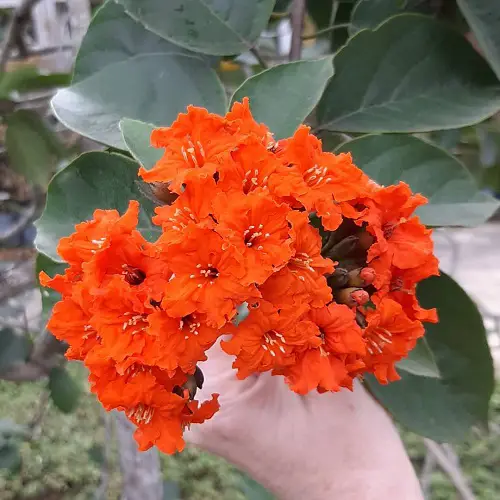
Botanical Name: Cordia sebestena
USDA Hardiness Zone: 10b-12b
Geiger trees are a part of the borage family and spread nearly 25 feet once they mature. They have bright red-orange flowers and acidic fruits.


